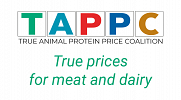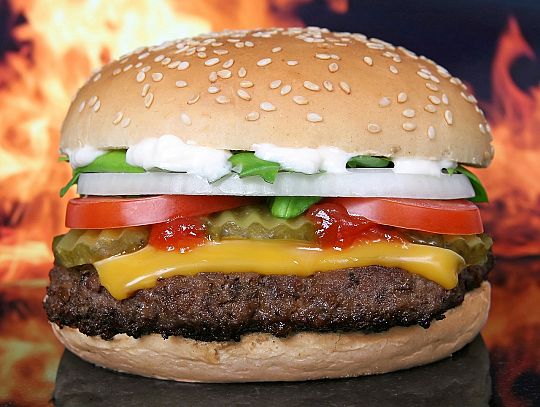Agri-food recommendations for EU elections 2024
TAPP Coalition published recommendations for political parties for their election programs for the EU elections in 2024, Eight priorities are shared with political parties in Brussels and in the Netherlands. We also refer to the European days of action 1-31 October organised by Good Food Good Farming to ask attention for food system change at EU level within the elections.
TAPP Coalition's Asks for your EU election program and priorities for Candidates:
1. Sustainable Food Systems:
The EU Parliament voted in 2021 for 0% VAT rates on healthy sustainable food (like vegetables, fruit, organic food, meat/dairy alternatives, bread, water, tea) and the highest VAT rates for food with negative impacts on health or sustainability (like soft drinks, meat, dairy, processed junk food like fast food that cause obesity). This proposal should become mandatory for EU Member States to make sure healthy sustainable food is the most affordable option and not the most expensive option like it is now.
2. Protect the health of our citizens by healthy food:
59% of Europeans are obese or have overweight and collective costs of bad eating habits are staggering. In the EU, it is estimated that up to 7% of countries’ national health budgets is spent on food related diseases linked to obesity, diabetes, cancer and stroke each year. The EU should promote only healthy and sustainable food with low climate footprints and forbid marketing of unhealthy food and meat products. Our aim is access to healthy and sustainable food for all citizens and lower health costs.
3. EU agriculture subsidies:
In future, European taxpayers’ money shall only support healthy food production for European citizens. Now, harmfull EU subsidies are granted to farmers who emit lots of GHG-emissions (eg veal production, intensive dairy farming, food production from drained peat soils). In the last 10 years GHG-emissions from EU agriculture did not decrease, climate subsidies for farmers did not work! Subsidies towards food products with high climate footprints and high pesticide levels will be reduced, while more subsidies will be available for plant based protein food production, organic farmers and biodiversity and climate protection. Farmers can benefit from Europe’s agricultural policy subsides, depending on how much they protect the climate, safeguard water and soil, animal welfare and protect biodiversity. We want fair product prices for farmers in vital rural areas; EU directives are needed to oblige retail companies and food services to calculate ‘true prices’ including environmental and social costs and pay this true price, allowing farmers to have living wages and budget for sustainability.
4. EU Social Food Fund:
Just like the EU Social Climate Fund of nearly 90 billion euro, we need a similar EU Social Food Fund to finance direct income support for vulnerable households to deal with increased food prices (also as a result of EU environmental policies) and to support measures and investments that reduce emissions in the food sector, including subsidies to produce climate neutral food.
5. Transition Towards More Plant-Based Diets:
We acknowledge the significant environmental and biodiversity impact of animal agriculture and commit to promoting a shift towards plant-based diets. This includes supporting initiatives that raise awareness about the benefits of plant-based eating and advocating for policies that encourage the availability and affordability of plant-based food options. EU directives for smaller portions/packages of meat and adding plant based proteins in mixed meat products like burgers are needed.
6. Food System and Climate Change
We recognize the interconnections between food systems and climate change: 1/3 of global greenhouse gasses comes from food systems and 80% of climate footprints from EU diets comes from meat and dairy. We ask for the integration of food system sustainability in climate change agenda's, ensuring that policies address the reduction of greenhouse gas emissions from the food & agriculture sector, promote sustainable land use practices, and protect biodiversity. Retail and livestock sectors are the only sectors in the EU not yet part of a CO2-climate pricing like ETS, so this exemption has to be stopped. TAPP Coalition welcomes the report commissiond by DG Clima (EU Commission) on a EU-ETS for agri-food. We support the downstream option where dairy factories and slaugherhouses are selected for the EU ETS. We support the EU Commission will start a european debate about introducing an EU ETS system for agriculture or food or introduce other ways for carbon pricing in agri-food systems (EU milk quota or meat quota that will decline every year in line with Paris Climate Goals, will have a similar impact). To protect our farmers and our climate, higher EU import taxes on meat, dairy and animal feed (soy) are needed. The EU-Mercosur deal does the opposite: reduce import taxes of meat from South America, encouraging deforestation for growing even more soy and producing even more meat for EU markets. At global level we support the UN Loss and Damage climate fund to compensate low income countries for high GHG emissions caused by high income countries. Revenues from national taxes on meat and dairy (or EU ETS for agrifood) can be used partly for climate financing for the Loss & Damage Fund.
7. Support for Farm-to-Fork Strategy:
We endorse and actively support the European Commission's Farm-to-Fork Strategy, and the Framework for Sustainable Food Systems, which aims to transform the EU food system into a sustainable and healthy model. We ask for commitment to its implementation, including ambitious targets and concrete national action plans to achieve a more sustainable food system. The F2F-Strategy in 2021 wrote ‘EU tax systems should ensure food prices reflect true costs, external environmental cost’ and that legislation is needed to end very low meat prices (a code of conduct failed to do so). This needs implementation. Public procurement in the EU needs requirements for buying a fixed % organic food (eg. 30% by 2030), a max. % red/processed meat (eg max 10% of budgets); EU promotion campaigns have to warn for negative impacts of (animal and unhealthy) food and promote healthy and organic food. EU restrictions are needed for advertising and food promotion subsidies. A European sustainable food label is needed like Planet -Score (preferd over 'Eco-score). Retail companies should pay for GHG-emissions and inform consumers about the ‘true food price’.
8. Collaboration with Stakeholders:
We propose that you engage in open dialogue with stakeholders, including the TAPP Coalition and other relevant organizations.
We are confident that by integrating these asks into party platforms and candidate agendas, the EU elections contribute to a sustainable and resilient future for Europe.



